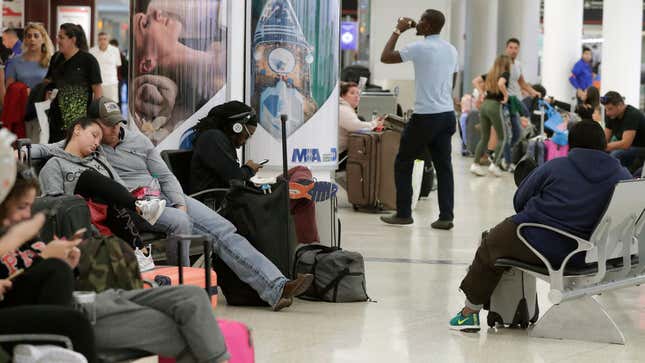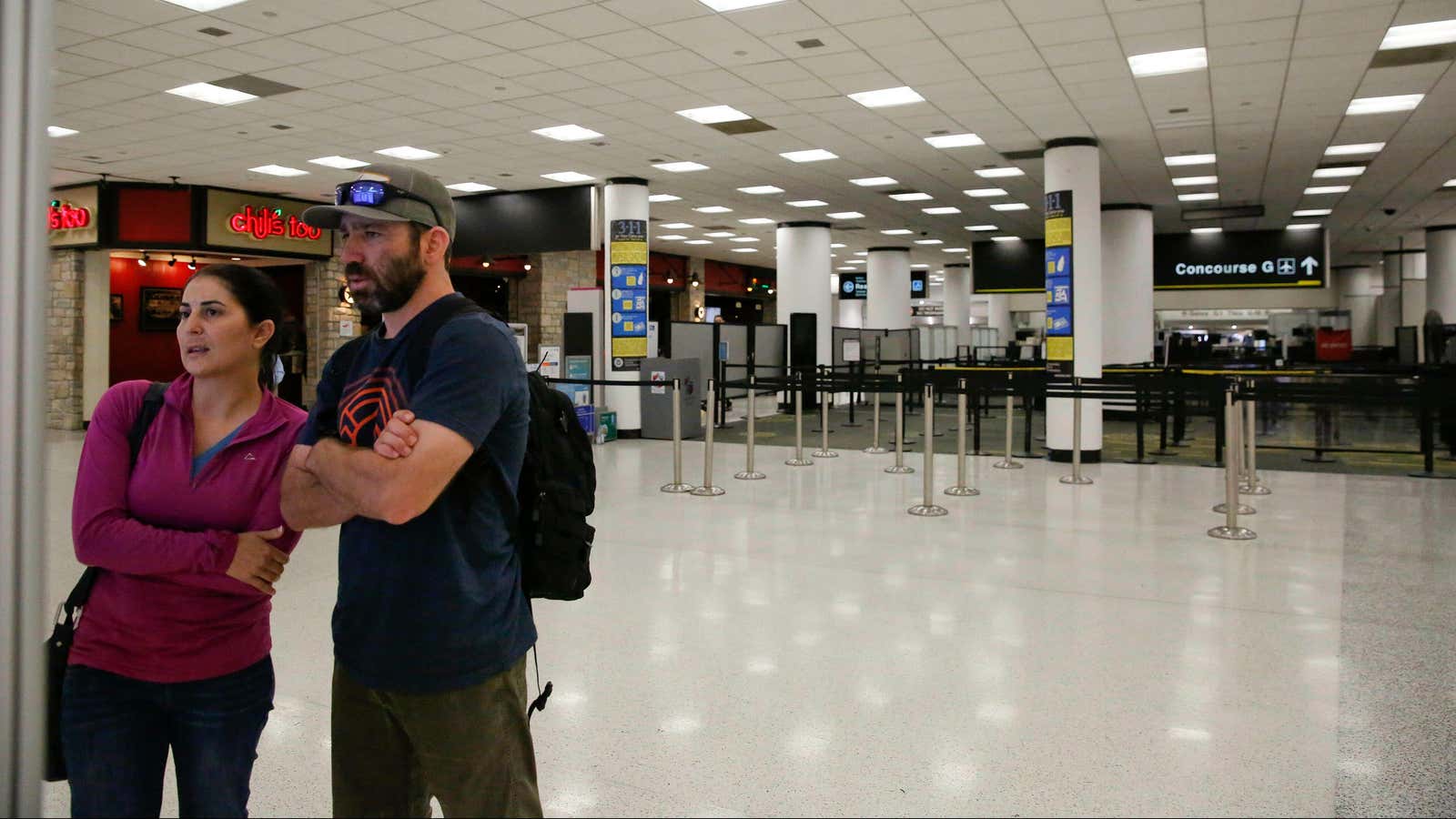Airports are starting to show the strain of the partial shutdown of the US government, which has now eclipsed the three-week mark to become the longest in history. The situation is creating headaches of its own, and to make matters worse, winter storm Gia is slamming the Midwest, freezing the travel plans of many passengers.
An unusually high number of Transportation Security Administration (TSA) workers have been calling in sick since their pay stopped. TSA screeners who staff security checkpoints are among the “essential” federal employees who are supposed to keep working. (They get paid retroactively, after the shutdown is resolved.) The TSA said that 5.1% of its 51,000 workers didn’t go into work Jan. 10, compared to 3.3% the same time last year. The number ticked up to 5.6% for Friday and yesterday (Jan 12).
The understaffed security checkpoints have been resulting in extra long lines for passengers. Miami International Airport, which has seen double the number of usual callouts by TSA screeners, decided to close one of its concourses for part of the day over the weekend and tomorrow, the Associated Press reported, to ensure that it has enough screeners on hand.

The AP also noted that airline-industry officials worry TSA screeners are especially likely to call out since they earn relatively low wages, typically between $26,000 and $35,000 a year. They can struggle to pay bills without their regular salaries and some airports have taken measures to help TSA workers get by, such as opening food pantries or organizing events to help them get short-term loans.
Other parts of the air-travel system still working as normal may start to reflect strains. Air-traffic controllers are also essential employees and so far enough have been going in to keep things running normally. But the president of the air-traffic controllers union told the AP that there is already a shortage of controllers, and that some 1,900 are eligible to retire. If many started to take that option, the government might have to limit air traffic, leading to more delays.
Meanwhile, roughly 3,300 safety inspectors under Federal Aviation Administration (FAA) have not been working, as they’re not deemed essential. These are regulatory workers who certify the inspections done by the airlines and companies that repair aircraft. The FAA has recalled a small number of inspectors to work and has sought to reassure travelers that their safety is not being compromised.
To date the most visible signs of the partial government shutdown have been things like trash piling up at the country’s national parks, or on the National Mall in Washington DC. For many Americans, it could soon become long lines and extended delays at the airport.
